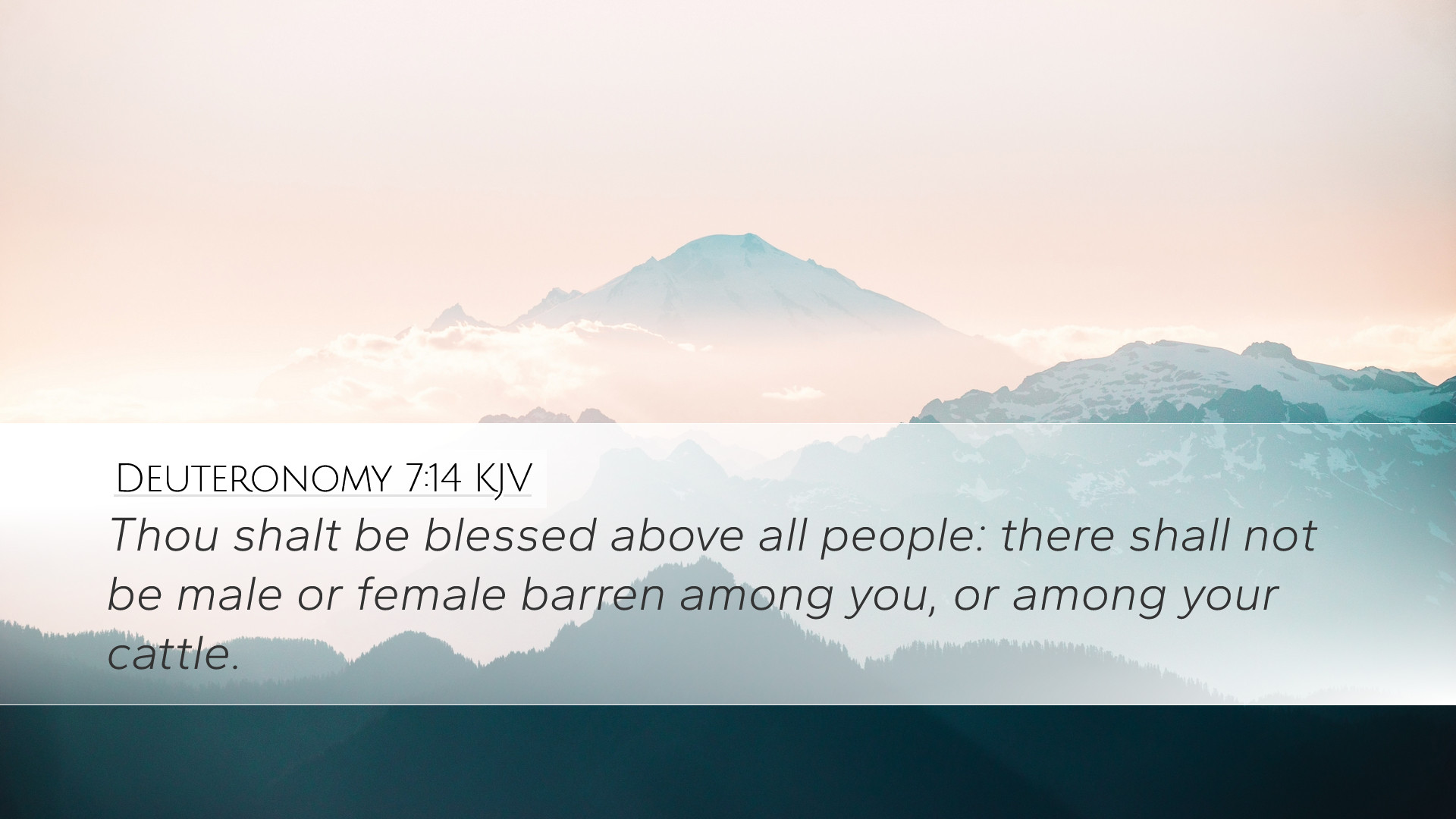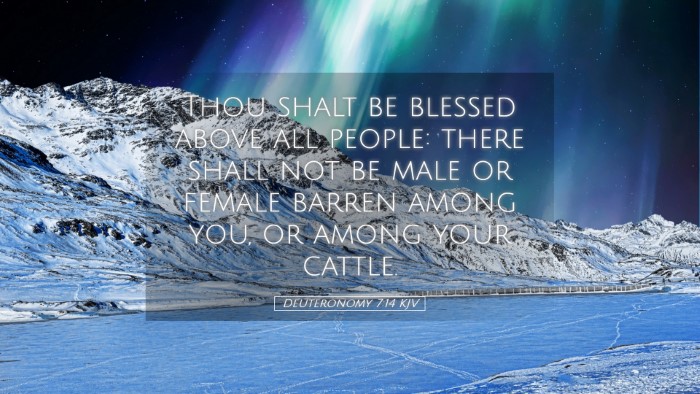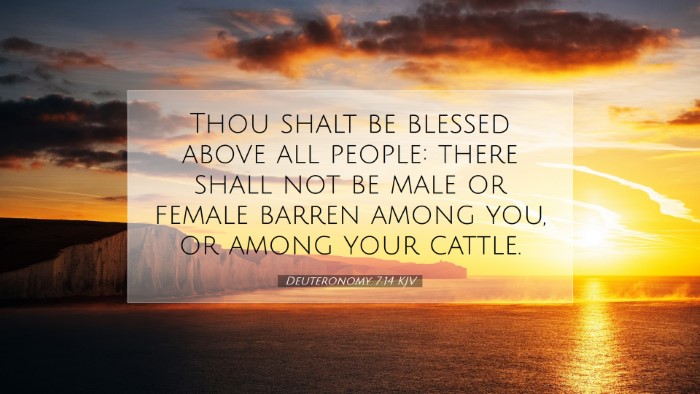Commentary on Deuteronomy 7:14
Verse: "Thou shalt be blessed above all people: there shall not be male or female barren among you, or among your cattle."
Introduction
Deuteronomy 7:14 is a part of Moses' farewell address to the Israelites. This verse promises blessings to the people if they follow God’s commandments. It emphasizes God’s desire to set Israel apart from other nations, recognizing the implications of faithful obedience and divine favor.
The Nature of God's Blessings
The text reveals several layers of blessings outlined in the verse:
- Material Prosperity: The promise of fertility among not just people, but also their livestock signifies an abundance which reflects God's provision.
- Spiritual Significance: This abundance isn't merely material but signifies God's covenantal relationship, showing how obedience leads to divine blessings.
Insights from Public Domain Commentaries
This analysis synthesizes thoughts from renowned commentators such as Matthew Henry, Albert Barnes, and Adam Clarke.
Matthew Henry
Henry emphasizes that God's blessings are conditional upon the Israelites' adherence to His commandments. He notes that being “blessed above all people” indicates not just favor but an elevation of status among nations. The absence of barrenness is highly symbolic, showing that God's grace ensures fruitfulness in various aspects of life.
Albert Barnes
Barnes elaborates on the concept of fertility and prosperity as fundamental signs of blessing. He highlights that “barren” conditions are often seen as indicative of divine disfavor. Thus, God's promise serves both as assurance of favor for the faithful and a warning against disobedience, which could lead to such barrenness.
Adam Clarke
Clarke presents a theological perspective, noting that this verse underlines God’s covenant with Israel. He articulates that the promise extends not just to physical offspring but to spiritual progeny as well, emphasizing the broader implications of God’s faithfulness to His people. Clarke also invites readers to reflect on the responsibility that comes with blessings, asserting that faithfulness brings God's abundant grace.
Exegesis of Key Terms
Understanding the original Hebrew terms can provide deeper insight into the text:
- Blessed (בָּרוּךְ - baruch): This term suggests an endowment with power for success, prosperity, or fertility.
- Barren (עֲקָרָה - akarah): Indicates a state of unfruitfulness which, in the ancient Near Eastern context, carried social stigma.
Theological Implications
The implications of Deuteronomy 7:14 stretch beyond mere physical blessings. The verse invites theological reflection regarding:
- Divine Providence: God’s providential care assures that His people will flourish when they remain faithful.
- Covenantal Relationship: The conditions of blessings offer essential insights into the nature of God’s covenant with His people; fidelity results in divine favor.
- Community and Identity: The emphasis on barrenness not present among the community reinforces collective identity and the importance of community in faith.
Message for Today’s Believers
For pastors, students, theologians, and Bible scholars, Deuteronomy 7:14 serves as both an inspiring promise and a sobering reminder of the responsibilities that accompany divine blessings. It encourages contemporary believers to:
- Reflect on Faithfulness: Consider how loyalty to God’s commandments influences personal and communal flourishing.
- Pursue Spiritual Growth: Seek to cultivate not just the external signs of blessing but also internal spiritual health and maturity.
- Embrace the Community Dimension: Acknowledge the role of community and collective obedience in witnessing God’s faithfulness.
Conclusion
In conclusion, Deuteronomy 7:14 offers profound insights into God’s character and His dealings with humanity. The promise of blessing that transcends mere physical abundance highlights the rich, covenantal relationship God desires with His people. Through the perspectives of Henry, Barnes, and Clarke, we are invited to deepen our understanding of the verse’s significance and apply its truths to our lives, fostering a community rooted in obedience and faith.


